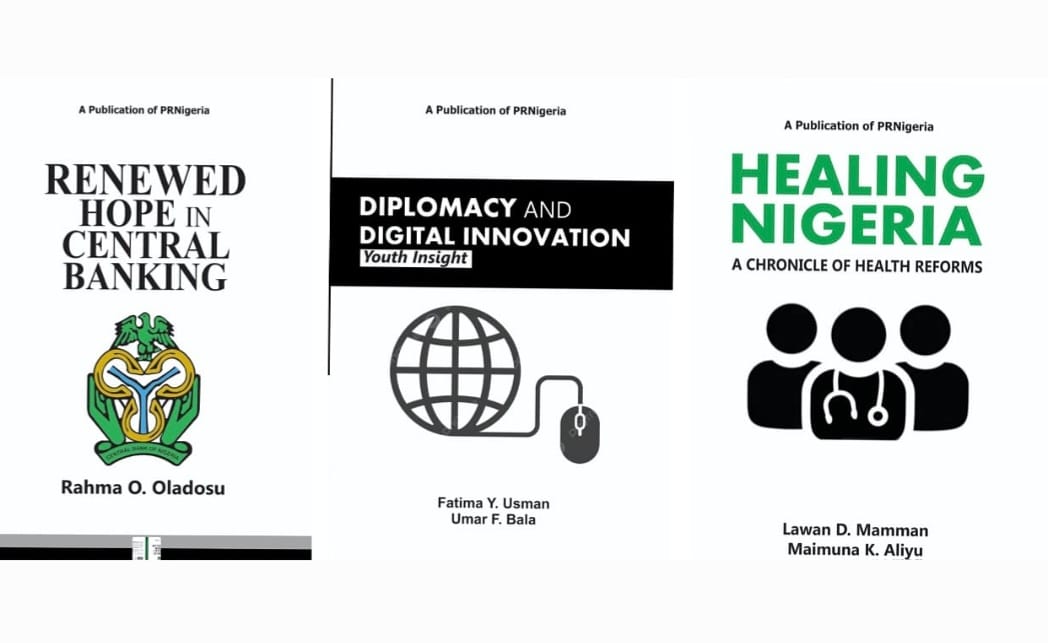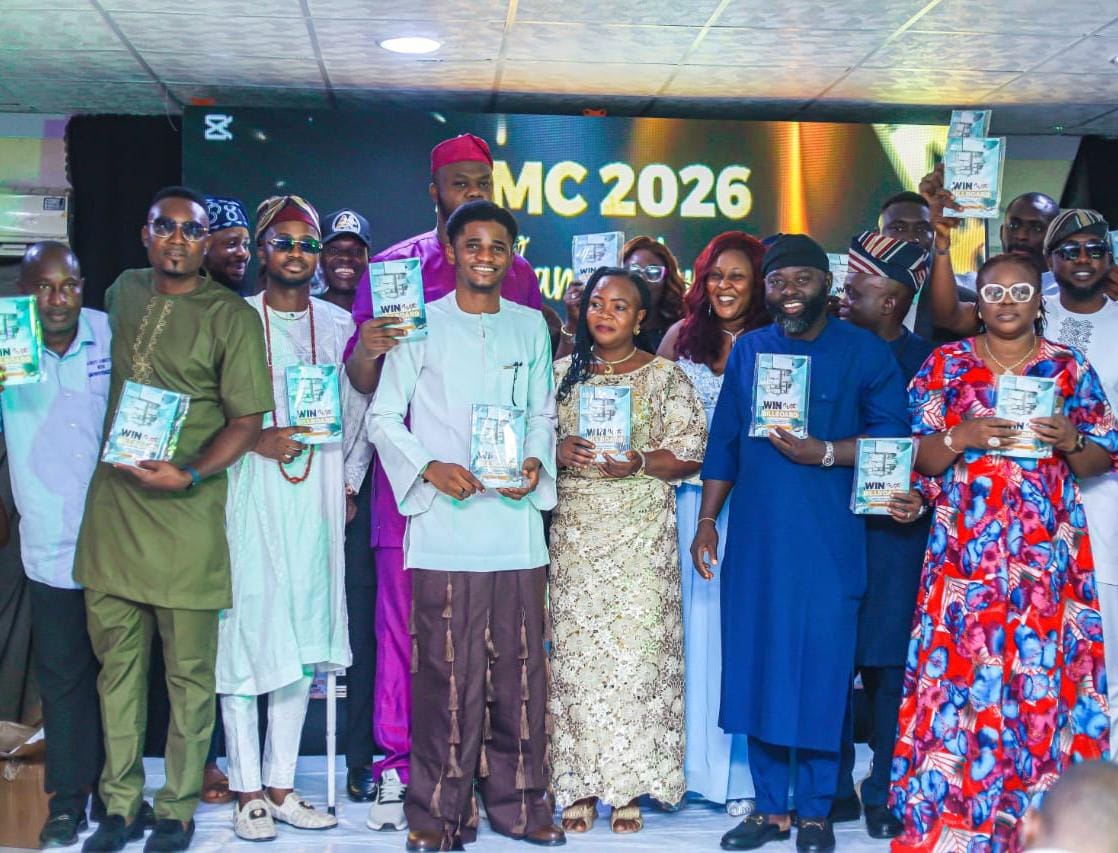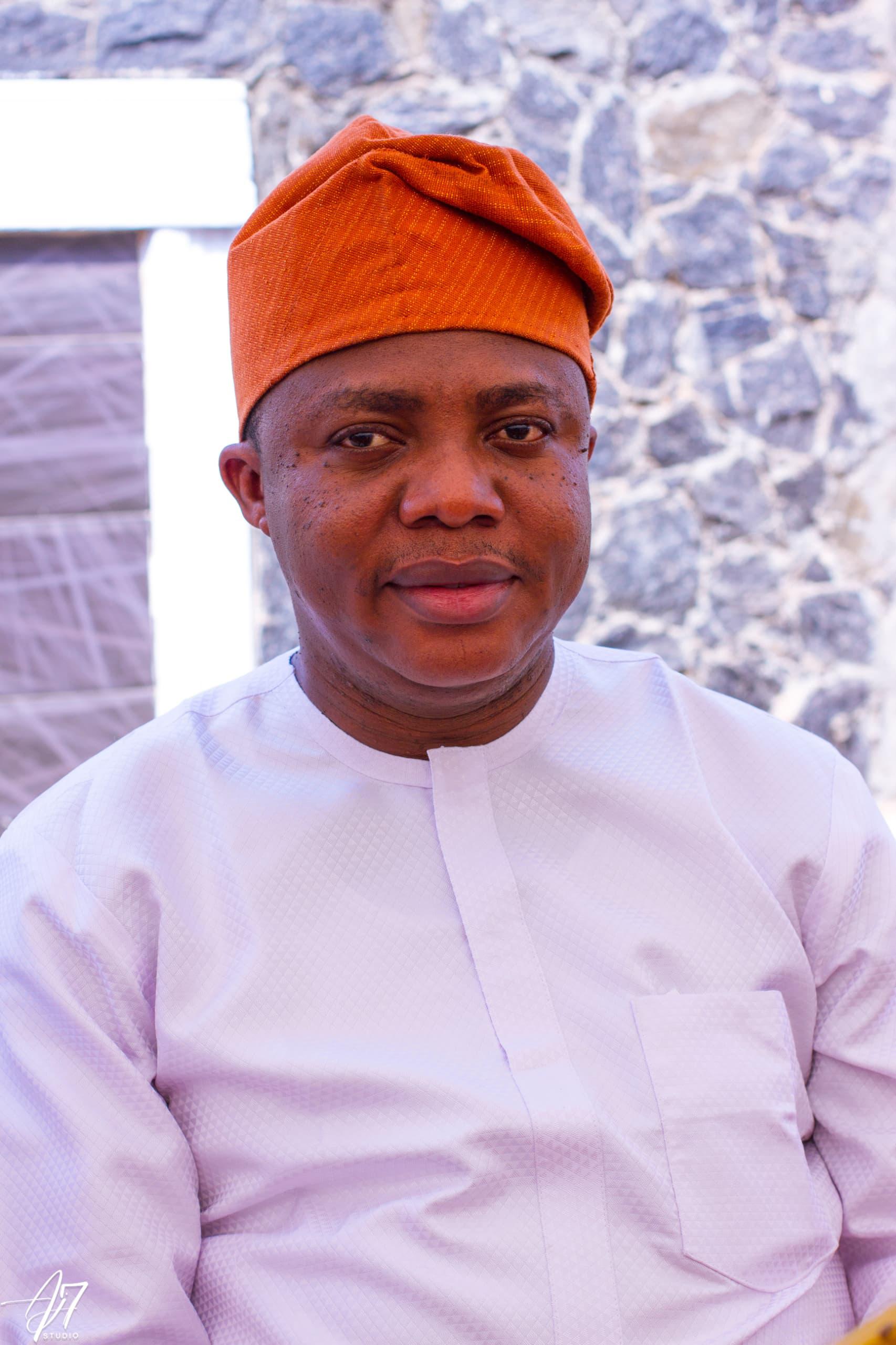Review of PRNigeria Books On Economic Renewal
BY Dr. SULE YAU SULE

When the Editor-in-Chief of PRNigeria and Economic Confidential, Mallam Yushau Shuaib, invited me to write the forewords for three distinct books addressing Nigeria’s monetary policy, healthcare reform, diplomacy, and digital innovation, I was deeply honored. As an avid reader of the authors’ incisive articles in national dailies, I considered it a privilege to contribute to their significant body of work.
As Chairman of the Board of Image Merchants Promotion Limited (IMPR)—publisher of Economic Confidential, PRNigeria, and Tech Digest—I have witnessed the growth of our editorial team firsthand. Upon receiving the drafts, it was evident that these books distilled a wealth of analytical insights from articles previously published and widely syndicated across our platforms.
At IMPR, we invest in rigorous training in research and writing for both staff and National Youth Service Corps (NYSC) members. This commitment extends beyond media publication; we refine and repurpose content into enduring scholarly works. It is a point of pride that nearly 70% of IMPR staff writers have authored or co-authored books—a rare achievement in Nigeria’s media landscape and a testament to our dedication to intellectual development.
Having written the forewords, I now offer a reflective review of these three works as a cohesive trilogy of ideas and vision.
The first book, “Renewed Hope in Central Banking” by Rahma Olamide Oladosu, emerges at a critical time of global financial turbulence and national economic uncertainty.
This 133-page volume, comprising 26 curated articles, offers a sharp yet accessible analysis of the Central Bank of Nigeria’s repositioning under Governor Olayemi Cardoso.
Originally published as analytical essays in Economic Confidential, Oladosu’s work captures the evolution of Nigeria’s financial system, exploring foreign exchange reforms, reserve diversification, liquidity management, and the rise of digital payments. She meticulously dissects policy choices and institutional recalibrations, situating Nigeria’s role as an aspiring monetary anchor for Africa through strategic engagements with continental counterparts like Egypt.
The book’s greatest strength is its clarity. It moves beyond chronicling policies to articulate a coherent vision of stability, self-reliance, and global respect for Nigeria’s financial leadership. For policymakers, economists, business leaders, and engaged citizens, “Renewed Hope in Central Banking” is essential reading.
The second book, “Healing Nigeria: A Chronicle of Health Reforms,” is co-authored by Lawal Dahiru Mamman and Maimuna Katuka Aliyu. This 156-page collection of 32 essays is a stirring exploration of one of Africa’s most complex and often neglected sectors: healthcare. Mamman and Aliyu combine investigative rigor with compassionate storytelling, producing a narrative that is both policy-driven and deeply human.
The authors chronicle Nigeria’s responses to outbreaks like diphtheria and anthrax, highlight advances in cancer care and mental health, and shed light on emerging frontiers in biotechnology and digital health. Anchored in global health milestones, these essays bring Nigeria’s struggles and triumphs into sharp relief.
What stands out is the book’s human-centered approach. It portrays patients’ yearning for dignity, professionals advocating for equity, and reformers daring to envision a more just system. In doing so, it elevates health equity from a policy ambition to a moral imperative—the bedrock of national resilience. “Healing Nigeria” is simultaneously a chronicle, a manifesto, and a call to action, deserving a place on the desks of policymakers, practitioners, and advocates.
The third and perhaps most inspiring volume of the trilogy is “Diplomacy and Digital Innovation – Youth Insight,” co-authored by two serving NYSC members: Fatimah Yusuf Usman (Mass Communication) and Umar Farouk Bala (Political Science and International Relations). Across 145 pages and 33 articles, they demonstrate what Nigerian youth can achieve when given meaningful platforms for expression.
Fatimah’s essays probe the digital transformation agenda, spotlighting the work of the National Information Technology Development Agency (NITDA), while Umar focuses on Nigeria’s foreign policy under the Ministry of Foreign Affairs. Together, they weave a narrative that positions innovation and diplomacy as twin pillars of Nigeria’s future.
They engage with significant issues—the “Japa” phenomenon, Nigeria’s campaign for a UN Security Council seat, and the shift from aid-dependence to innovation-driven development—while highlighting the roles of visionary leaders like Ambassador Yusuf Maitama Tuggar, Dr. Bosun Tijani and Mallam Kashifu Inuwa Abdullahi.
This book is more than a compilation; it is a youthful, optimistic reimagination of Nigeria’s global role, crafted with intellectual discipline and patriotic urgency. For scholars, policymakers, media professionals, and young people, it offers both a compass and a challenge.
Together, these three books form a collective blueprint for Nigeria’s transformation. From monetary reform and healthcare renewal to digital innovation and smart diplomacy, they underscore a powerful truth: that well-articulated ideas can inspire action, strengthen institutions, and reshape destinies.
I commend the authors for their courage, clarity, creativity, and the publishers for their foresight in nurturing such intellectual enterprise. These works are not merely reflections of our times—they are guideposts to a future of hope, dignity, and national renewal.
Dr. Sule Yau Sule (PhD, FNIPR, FARCON, MNGE) is an Associate Professor of Strategic Communication













